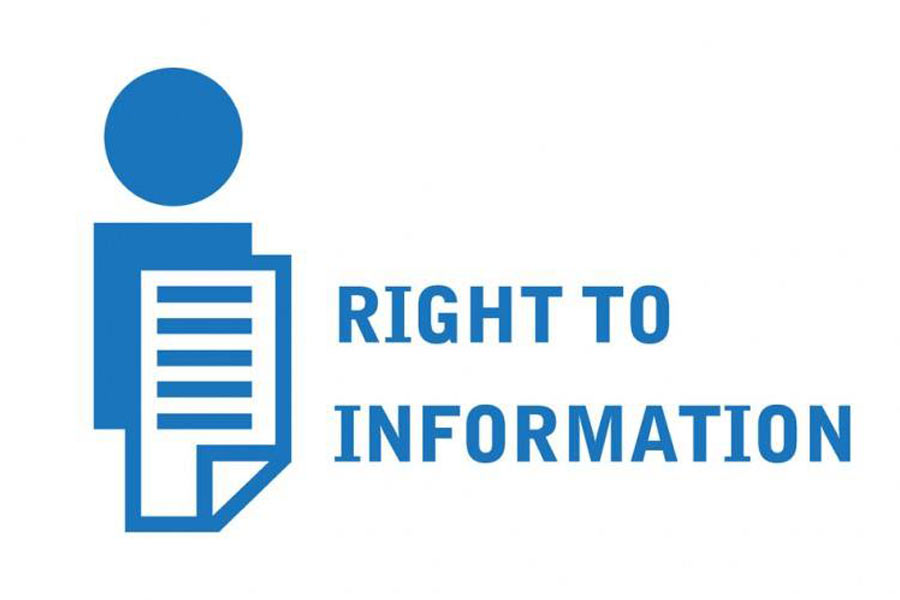Few things imperil representative democracy as gravely as irreverence for the mandate that sanctions it. ‘Transparency’ is a common phrase associated with a functioning democracy; opacity in Government functioning is accepted anathema. So how did the Right to Information (Amendment) Bill, 2019, survive scrutiny? And why does it pose a threat to democracy?
The ‘right to know’ has a chequered history in the context of India, post-independence, and is not without its share of bloodshed, even in the recent past—a bleak indicator of the potency of the disclosure of information in an inherently imbalanced power dynamic. The Supreme Court had held that citizens have a “right to know” as early as 1975, and recognized the ‘right to information’ as a fundamental right implicit in the right to freedom of speech and expression under Article 19 (1) (a).
However, a substantial push for an effective RTI regime is traced back to Devdoongri in Rajasthan and the Mazdoor Kisan Shakti Sanghatan (MKSS) in the 1990s, where peasants and landless workers in rural areas were often cheated of their complete wages, and were left remediless for lack of information to confront the administration with. Thereafter, hitherto isolated movements in various parts of the country transformed into one consolidated national movement and eventually culminated to give rise to The Right to Information Act, 2005.
The growth of transparency laws was necessitated, among other reasons, by corruption, the resultant opacity and mistrust in the state, and the utter inadequacy of internal mechanisms to curb it. Further, the push for transparency laws also marked the movement of democracy towards a participative structure where citizens are entitled to be informed about the functioning of public authorities and hold their Governments to account.
The regime under the Right to Information Act, 2005 (“the Act”) recognizes the imbalance of power between the citizen and state, and seeks to harmonize this through the mechanism of disclosures of information pertaining to the Government and its functionaries. To achieve its stated objects, the Act sets out a three tiered regime.
At the first level, all public authorities are required suo motu to catalogue information pertaining to them and to place the same in the public domain to be readily accessed by all. However, if the said information is not available in the public domain, the citizen is entitled to make an application to Public Information Officers (who are required to be appointed by every public authority). If the request for information is denied, the citizen is then entitled to appeal the said rejection before the First Appellate Authority. As a final remedy, the aggrieved citizen is entitled to approach the body led by the Chief Information Commissioner and the Information Commissioners (Central Information Commission) at the Central level, and the State Chief Information Commissioner and the Information Commissioners at the State level (State Information Commission).
As the CIC and SICs are tasked with adjudicating appeals filed by those persons whose requests for information have been denied by various Government departments under the RTI regime, it is effectively the final recourse available to a citizen for procuring information about a public authority where the same has been denied to them. It is primarily for this reason that the office of the Information Commissioner(s) is nodal to the proper functioning of the RTI regime.
Independent appeals, among other factors, form the bedrock of an effective transparency law regime, as is recognized internationally. To secure this, the office of the Information Commissioner(s) was hitherto kept carefully insulated and necessarily outside the scope of reach of the Government of the day. And the aforesaid infrastructure has yielded important results in the 14 years since the enactment of the Act. It is this crucial tenet that the Amendment blatantly affronts.
The Amendment fundamentally alters the conditions of service of the Information Commissioners—not by replacing the erstwhile conditions with new conditions, but by subjecting the heads of the same to the decision of the Central Government, both at the Central and State level. The Act originally stipulated the tenure, quantum of salary and deductions in salary without subjecting it to the discretion of the Government. Under the Act, the tenure of the office of Information Commissioners was a fixed term of five years. Their salary was to be the equivalent of that drawn by the Chief Election Commissioner, and Election Commissioners at the Centre, and at the State Level the Election Commissioners and the Chief Secretary to the State Government.
The Amendment now states that the term of office “will be notified”; salary allowances, and other terms and conditions of service will now be determined by the Central Government.
In his open letter dated. 26-07-2019, former Information Commissioner M Sridhar Acharyulu calls upon three Chief Ministers to answer questions—moral, legal, constitutional, and political—about what it means to support the Right to Information, Bill, 2019 that was passed by both houses of Parliament without a whisper of reasoning, and without subjecting it to any substantial scrutiny.
As Acharyulu states in his letter, no information as to the proposed term or structure has been provided. The starkest aspect of the said Amendment is the lack of (cogent) reasons justifying why such a change is necessitated at all. The Government argued at the time of introducing the Amendment that the statutory post of the information commissioners cannot be at par with constitutional posts (Supreme Court Judges and Election Commissioners). However, such an argument cannot be accepted; while the aforesaid fact is true, it is simply not how legislation works.
Legislation seeks to achieve a stated object in a particular field—in the present case, to give effect to a Constitutional right. Therefore, making the fundamental right to information effective and meaningful is the object of the statute and ideally drives the legislation. That being the case, in this specific context, the stated purpose of the Government in seeking to reconcile the ‘inconsistency’ pertaining to the nature of the post has no significance at all, and cannot justify a fundamental alteration affecting the exercise of the right to information itself.
Statutes are tested on the touchstone of the Constitution—and the measure of tenability is its compliance therewith. The other argument that the Amendment does not affect appointments, and is therefore, justifiable and necessary, merits no consideration at all; where the conditions of service, salary, and tenure are substantially being interfered with, such an argument is specious, at best.
At this juncture, it is pertinent to refer to the Report of the Parliamentary Standing Committee on Right to Information in 2005 where it was stated:
“The Central Information Commission is an important creation under the Act which will execute the laudable scheme of the legislation and will hold an all India responsibility for this. It should, therefore, be ensured that it functions with utmost independence and autonomy. For this reason it was desirable to confer on the Information Commissioner and Deputy Information Commissioners, status of the Chief Election Commissioner and the Election Commissioner, respectively.”
The Amendment ignores the positive obligation on the state to give effect to a fundamental right; the law-makers ought to render the right meaningful by providing the architecture, as it were, allowing for its effective exercise. What logically follows is also that any move to undermine a fundamental right is unconstitutional.
How such an Amendment was passed by both houses of Parliament, amidst widespread protests from citizens rooted in legitimate concerns, can best be explained by saying that what may be considered a successful democracy in terms of the ideal of being governed by elected representatives, is likely to be unsuccessful in terms of representation of citizen’s interests for various reasons, not the least of which is the manner in which elections pan out in reality.
How the Amendment passed scrutiny is no mystery—it was never subjected to scrutiny at all. Unlike the Act itself, this crucial Amendment was not referred to any Parliamentary Committee for consideration, thereby precluding its examination on merits and any debate it might have legitimately warranted.
As the Supreme Court had observed in 2016, an informed citizen “has the capacity to reasoned action and also to evaluate the actions of the legislature and executives, which is very important in a participative democracy’. The right to information is the right to have an opinion, the right to demand, the right to ask questions.
By subjecting conditions of service, and consequentially jeopardizing the security of the office, the Amendment ensures that Information Officers are yielding to the will of the Government of the day. It logically follows that the Amendment makes the Central Government the final arbiter in cases where its own departments refuse to make disclosures to citizens under the RTI regime, thereby rendering the right to information nugatory.
In February 2019, the Supreme Court had occasion to consider the functioning of the RTI regime to the extent of the failure of the Government to appoint Information Commissioners, and the pendency of appeals, in a Writ Petition filed by RTI Activist Anjali Bhardwaj, along with other Petitioners. Therein, while urging the Government to take necessary steps to fill up the vacancies, the Court extolled the importance of the RTI regime and reiterated how Information Commissioners are the “Guardians” of the Act while observing with regards to the powers of the CIC and SICs that the “existence of these institutions becomes imperative and they are vital for the smooth working of the RTI Act.”
With the Bill being passed by both houses of Parliament, it is now up to the courts to uphold constitutional rights and processes, and unequivocally strike down the Amendment as being unconstitutional, thereby establishing that democracy will not be scuttled by a game of numbers.







